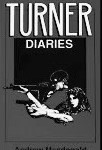At one point during his infamous 2014 appearance on the CBC arts program Q, director and enfant terrible Alain Marchant set his sights squarely on English Canadian films, asserting: “You see our (Quebecois) cinema and we have directors like Denis Villeneuve, Xavier Dolan, Jean-Marc Vallée and myself. And, historically, I think of some of the people who inspired us: Denys Arcand, Claude Jutra and, especially in my case, Jean-Claude Lauzon. Okay? But you look elsewhere in this great, white north and what do you have? American knock-offs and Men With Brooms. C’est comme ça. Dreadfully sorry, old chap, but it’s true.”
When guest host Larry (now “Laura”) Grotowski protested the slight against Anglophone movies, interjecting names like Cronenberg, Haggis and Egoyan into the discussion, Marchant backed down, slightly, admitting that he very much admired the oeuvre of Manitoba auteur Guy Maddin. But he couldn’t resist adding fuel to the fire by mischievously adding: “Of course, with a name like Guy, he’d have to be part French, don’t you think?”
Unfortunately for Marchant, his inflammatory statements and pronouncements often overshadow (a la Lars Von Trier) an interesting and provocative filmography, threatening to do real damage to an artistic trajectory that has been, by turns, brilliant, maddening and incomprehensible.
His first efforts, short subjects shot in or near his home in Laval, he refers to as “tests”.
Séduction (2004) is off-putting, to say the least. Eighteen minutes long, it appears to depict sexual congress between two minors, while the girl’s parents are watching inane TV programming upstairs. The footage is grainy, underlit, filmed with a cheap DV camera. As the teenagers couple, a popular song by Quebec chanteuse Bisou-Bisou plays in the background, the track looped so the three-minute tune repeats itself over and over, an unsettling and annoying accompaniment to a reluctant and inexpert deflowering.
160 (2005) was, apparently, some sort of perverse homage to Marchant’s hero, Jean-Claude Lauzon¹, but many missed the intended tribute. The title refers to the section of the Canadian Criminal Code relating to bestiality. The “plot” concerns the frantic attempts by a man (played by Marchant and shown only from behind or in profile) to gain sexual satisfaction via intercourse with a menagerie of creatures, before determining an elephant would make the ultimate partner. The denouement is messy and meant to be comic (I think). It doesn’t quite get there.
Pilote Dimanche (Sunday Driver), made that same year, begins innocuously enough with a man (Marchant) getting dressed, taking meticulous care with his appearance and deportment, straightening his tie and buffing his shoes. Humming tunelessly, he collects his car keys, pets the cat on the way out (!) and then proceeds to ram or run over any pedestrians and cyclists he finds alone or in isolated circumstances. We don’t see the actual collisions, but Marchant makes sure we hear them, sickening impacts and fleshy explosions. Definitely not for the squeamish and, indeed, Pilote Dimanche was refused space in a number of film festivals — Marchant savagely denounced the “moral and aesthetic cowardice” of festival organizers and used the resulting press to great advantage².
Indeed, the attention garnered by Pilote Dimanche enabled Marchant to secure funding for his first full-length effort, the predictably controversial J’adore Le FLQ (I Love the FLQ). Released in 2007, the film created a political and cultural firestorm. First of all, the notion of staging a recreation of one of Canada’s darkest periods as a sunny, Busby Berkeley-esque musical was strange enough, but Marchant added insult to injury by concocting scenes guaranteed to offend: a young terrorist cooing a love song to his automatic weapon, growing increasingly aroused as he strips it down and gently lubricates it…and having kidnap victim Pierre Laporte engage in a long, slow, sensuous tango with one of his captors just before he is murdered.
J’adore Le FLQ was vilified in many quarters and denounced on the floor of the House of Commons, but it also turned out to be a surprise hit at the box office in Quebec and France, even earning two Genie nominations (for editing and best score, winning neither). While some wags opined that Marchant had likely shot his last foot of film in this country, they should have known better. The young maverick announced at a press conference in February, 2008 that his next project would be an adaptation of  William Pierce’s Turner Diaries, an infamously vile polemic that climaxes with a race war, a determined cadre of heroes bent on destroying or enslaving inferior breeds like Jews and blacks and imposing white rule in America. But the event turned out to be another one of Marchant’s notorious stunts—he had never, in fact, read the book, let alone secured rights to it. Was it an anti-Semitic jab, as some have contended (one of his main detractors in the Quebec media happens to be of Jewish descent)? Marchant denied it, adding: “Why confine yourself to hating just one race when the entire species is beneath contempt?”³
William Pierce’s Turner Diaries, an infamously vile polemic that climaxes with a race war, a determined cadre of heroes bent on destroying or enslaving inferior breeds like Jews and blacks and imposing white rule in America. But the event turned out to be another one of Marchant’s notorious stunts—he had never, in fact, read the book, let alone secured rights to it. Was it an anti-Semitic jab, as some have contended (one of his main detractors in the Quebec media happens to be of Jewish descent)? Marchant denied it, adding: “Why confine yourself to hating just one race when the entire species is beneath contempt?”³
¹Jean-Claude Lauzon (1953-97) Director of Leolo and Un Zoo La Nuit (Night Zoo), his life tragically cut short by a helicopter mishap while scouting locations for a movie project.
²Despite his fierce defense of Pilote Dimanche, I think it telling that it’s one of the few Marchant-helmed projects not currently available to cineastes — I saw a bootleg of a bootleg a few years ago and that was bad enough. On a big screen, it would have been excruciating.
³From an interview in Maclean’s magazine (April, 2008)
(To be continued…)


One thought on “The Toxic Cinema of Alain Marchant”